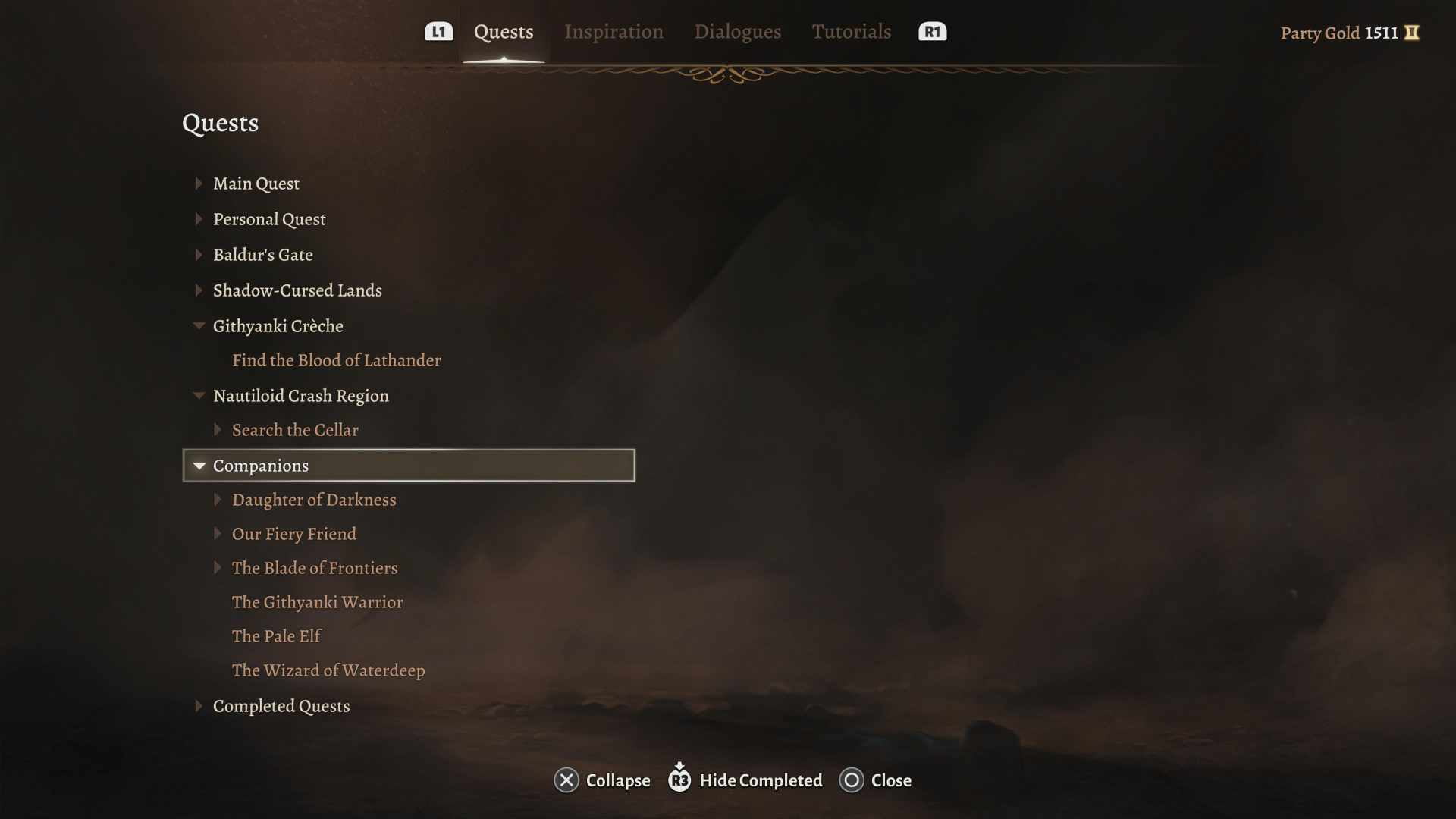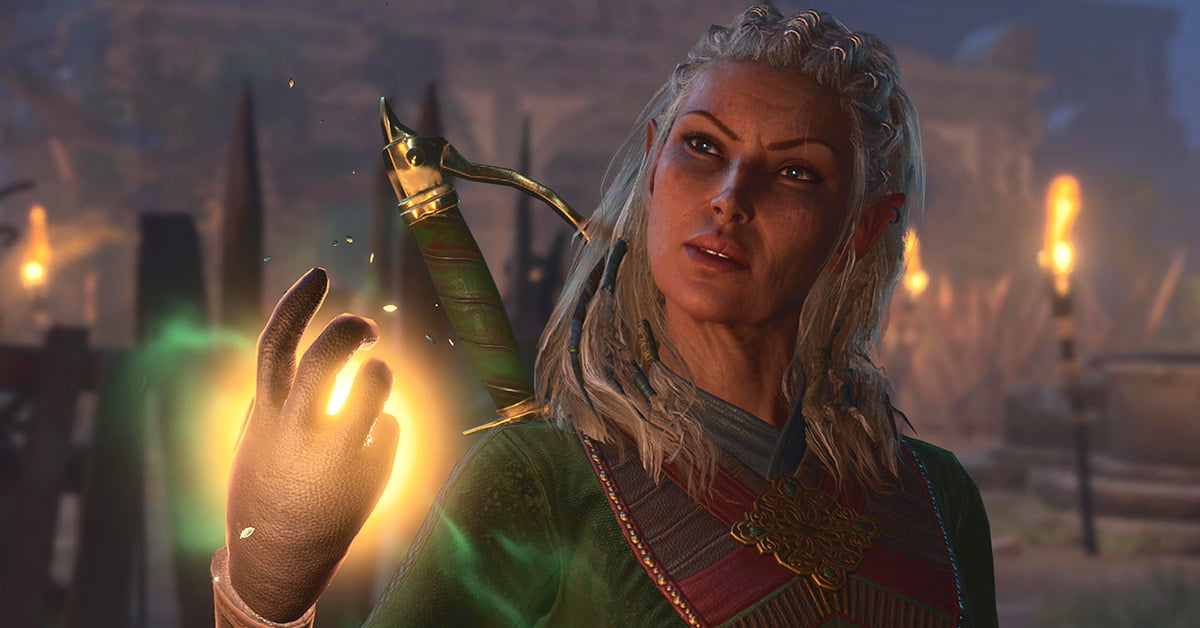Long to-do lists are usually not my cup of tea, unless they’re the quest logs of games. When I’m really into a game, like I currently am with Baldur’s Gate 3, the quest log can’t be long enough. I want to experience everything the game has to offer. That means ticking off all the side quests first, helping and winning over my companions in every possible way, and only then moving on to the main quest. The end of the world can wait patiently.
However, when I get the feeling that I can’t discover everything I want to in a single playthrough, it makes me a bit anxious. High replay value is fantastic, and I often fully intend to do multiple playthroughs. Eventually that does happen, but usually only by the time I’ve already forgotten some story developments. My pitfall is that I then tend to make largely the same decisions as in my first playthrough. My fault, I know. But that’s where my restlessness comes from.
And that restlessness only increased in Baldur’s Gate 3 when I heard that certain quests are time-sensitive. I read that some quests can essentially resolve themselves (in unfavorable ways) if you wait too long. So, I force myself to prioritize certain quests that could potentially be time-sensitive. Additionally, I take it easy with the long rests. In turn, this gives me the fear of missing out because what if I miss unique long rest moments? Oh, the stress.
Quest Log

I love Baldur’s Gate 3’s quest log, don’t get me wrong. Elden Ring’s quest log was highly praised because the game doesn’t hold your hand, it throws you into the deep end and lets you discover things on your own. This approach was just a bit too abstract for my personal taste. I found quests hard to come by, and NPCs, especially their locations, difficult to remember.
Baldur’s Gate 3’s quest log strikes a perfect balance between too much handholding and no handholding at all. The quest log records interesting developments, points you in the right direction when it makes sense, and provides hints on where to pick up the thread of a quest. For some quests, you have no idea where to go, and you stumble upon things by chance. Or you read a random book that turns out to be related to a quest. From a game design perspective, I find this approach fantastic, and I hope we’ll see it more often in future games.
Then again, Baldur’s Gate’s quest log doesn’t get everything right. My fear of missing out mainly arises towards the end of each act. Developer Larian Studios is kind enough to warn you to finish your unfinished business before finishing an act. But how do I know which quests I should complete within the act and which ones carry over to the next act? For that, I had to resort to Google, with all the potential, risky spoiler consequences that come with it.
Companion Quests

I always strive to be liked by everyone, not only in real life but also in all my first playthroughs (although I must admit that my renegade playthroughs of Mass Effect are among my most memorable gaming adventures). And how do we make sure our companions appreciate us? By completing their quests, of course!
However, in Baldur’s Gate 3, companion quests often provide no more instruction than “Travel with your companion.” Okay, thanks for the tip. Sometimes, I stumbled upon NPCs I knew had a specific relationship with a particular companion. So, I would load a recent save, adjust my party to include that companion, and engage in the conversation once again. I couldn’t miss out on a tailor-made dialogue for that companion, of course.
The result of this fear of missing out is that I constantly opened and reviewed my journal. And the worst part? I’ve only managed to unlock one of the available romances. Every companion holds an exceptional opinion of me, but apparently, I’ve missed some significant opportunities. I’ll have to live with it. Apparently, my character is monogamous. But not for a lack of trying.
No, upon reflection, I’d rather have a work-related to-do list after all. If I miss something there, I can live with it much better. My boss might appreciate it a bit less, but that’s beside the point.







